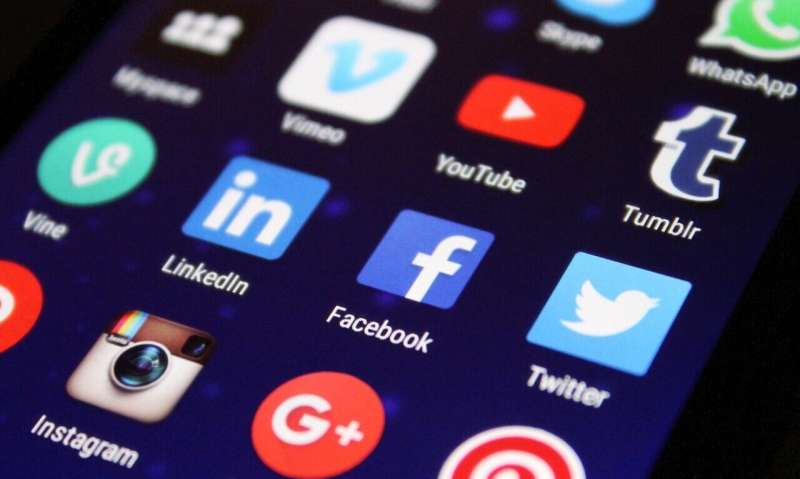
Heavier social media use is associated with more frequent alcohol consumption among young people in the UK, according to a new UCL study.
Published today in the journal Addiction, the study found that those aged 10-15 who used social media more regularly were more likely to drink alcohol. The researchers also found a link between heavier social media use and more frequent binge drinking among young adults aged 16-19.
The study authors believe that this study is the first of its kind in the UK to show that this strong correlation exists, and that this relationship also occurs across time.
Researchers analyzed data from the UK Household Longitudinal Study (Understanding Society), collected between 2011 and 2013 on 6,782 participants, and then followed-up in 2014 to 2016 with 3,645 participants. Study respondents were grouped into two age groups, 10–15 and 16-19, and self-reported their social media usage via self-completion questionnaires filled in private, administered by trained interviewers in participants’ households.
Social media use was measured by asking how many hours respondents spent chatting or interacting with friends through social websites (including Facebook, Myspace and Bebo) on a normal weekday, with categories comprising ‘no profile,” ‘non-daily use,” ‘less than an hour use per day,” ‘one to three hours’ use per day,” and ‘four hours’ use or more per day.” Drinking frequency was categorized as ‘never,” ‘one to two times in the past month’ and ‘more than three times in the past month.” Binge drinking frequency was based on how many times participants aged 16–19-year-olds had drunk five or more drinks on a single occasion in the past month.
The study found that 18% of participants aged 10 to 15 years drank at least monthly, with a greater risk of more frequent drinking for each additional hour of social media use. Researchers found this association even when taking a range of factors into account such as sex, number of close friends, life satisfaction, rural or urban location and household income
Among 10–15-year-olds, those with no social media profile, non-daily users and those who used social media for less than an hour a day were found to be less likely to drink at least monthly compared to those with one to three hours’ use and over four hours’ use. Compared to those who limited their social media use to less than an hour a day, those who used social media for four hours or more per day were more likely to drink once a month or more (42% vs 19%). They were also more likely to be female (64% vs 36%) and to be dissatisfied with their lives (13% vs 3%).
Looking at comparisons over time, the researchers found that among those aged 10–15 years, 43% increased their drinking frequency over the study period, with those who increased their social media use also more likely to drink more frequently.
Overall, the study found that 30% of respondents aged 16-19 drank at least weekly, also revealing a higher risk of binge drinking for those in this age group who used social media for four hours or more per day compared to those with less than an hours’ use per day.
Study lead author, Dr. Linda Ng Fat (UCL Department of Epidemiology and Public Health), said: “With a decline in alcohol consumption and a rise in social media use amongst young people around the world, we wanted to understand if and how social media use might be influencing how frequently young people drink. Our results indicate that social media is not directly behind this decline in alcohol consumption, and in fact highlights the positive link between social media use and drinking for both age groups in the study.
“However, the exact reasoning behind the association is not yet known. Given the recent rise in the number of social media platforms such as Snapchat, Instagram and TikTok—which weren’t included in this study—it’s vital that greater attention is paid to this issue so we can better understand the intricacies of this relationship.”
Study co-author Professor Yvonne Kelly (UCL Department of Epidemiology and Public Health) said: “Experimentation with drinking during adolescence is all part and parcel of growing up. However, the pattern between time spent online and drinking among 10-to-15-year-olds in our study is particularly striking, given that the purchase of alcohol for this group is illegal, coupled with the potential problems associated with the introduction to alcohol from an earlier age.
“The reasons why time spent online could link to drinking behaviors are not clear but could include having negative experiences in online spaces, as well as to exposure to advertising. Further research that builds on our study findings is key to understanding how time spent on social media platforms could be influencing the drinking habits of young people—either directly through alcohol advertising or indirectly through the normalization of drinking and being drunk.”
Source: Read Full Article
